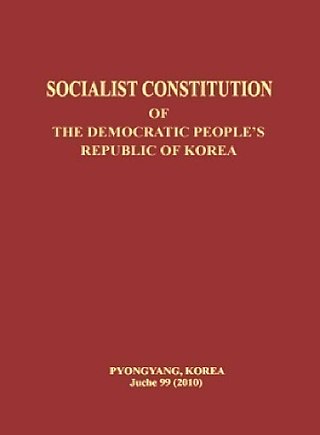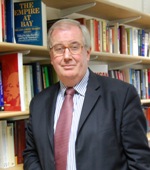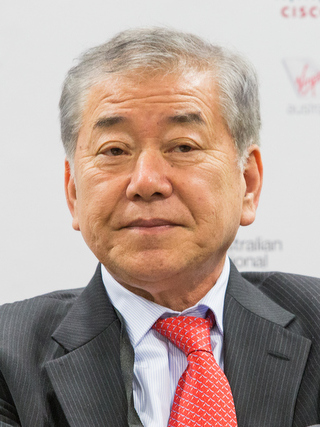
A think tank, or policy institute, is a research institute that performs research and advocacy concerning topics such as social policy, political strategy, economics, military, technology, and culture. Most think tanks are non-governmental organizations, but some are semi-autonomous agencies within government, and some are associated with particular political parties, businesses or the military. Think tanks are often funded by individual donations, with many also accepting government grants.

The American Enterprise Institute for Public Policy Research, known simply as the American Enterprise Institute (AEI), is a center-right think tank based in Washington, D.C., that researches government, politics, economics, and social welfare. AEI is an independent nonprofit organization supported primarily by contributions from foundations, corporations, and individuals.
Neoconservatism is a political movement that began in the United States and the United Kingdom during the 1960s during the Vietnam War among foreign policy hawks who became disenchanted with the increasingly pacifist Democratic Party and with the growing New Left and counterculture of the 1960s, particularly the Vietnam protests. Neoconservatives typically advocate the unilateral promotion of democracy and interventionism in international affairs, grounded in a militaristic and realist philosophy of "peace through strength." They are known for espousing disdain for communism and political radicalism.

Michael John Parenti is an American political scientist, academic historian and cultural critic who writes on scholarly and popular subjects. He has taught at universities as well as run for political office. Parenti is well known for his Marxist writings and lectures. He is a notable intellectual of the American Left.

Edward Peter Djerejian is a former United States diplomat who served in eight administrations from John F. Kennedy to Bill Clinton (1962–94.) He served as the United States Ambassador to Syria (1988–91) and Israel (1993–94), Special Assistant to President Ronald Reagan and Deputy Press Secretary of Foreign Affairs (1985–1986), and was Assistant Secretary of State for Near Eastern Affairs (1991–1993.) He was the founding director of Rice University's Baker Institute for Public Policy (1994-2022) He is a senior fellow at the Middle East Initiative at Harvard Kennedy School's Belfer Center for Science and International Affairs, a fellow of the American Academy of Arts and Sciences and is on the board of trustees of the Carnegie Corporation of New York. Djerejian was elected chairman of Occidental Petroleum Corporation's board of directors (2013–2015). Djerejian is the author of the book Danger and Opportunity: An American Ambassador's Journey Through the Middle East

John Quiggin is an Australian economist, a professor at the University of Queensland. He was formerly an Australian Research Council Laureate Fellow and Federation Fellow and a member of the board of the Climate Change Authority of the Australian Government.

The Socialist Constitution of the Democratic People's Republic of Korea is the constitution of North Korea. It was approved by the 6th Supreme People's Assembly at its first session on 27 December 1972, and has been amended and supplemented in 1998, 2009, 2012, 2013, 2016, 2019 (twice), and in 2023. It replaced the country's first constitution which was approved in 1948.

Michael E. Cox is a British academic and international relations scholar. He is currently Emeritus Professor of International Relations at the London School of Economics (LSE) and Director of LSE IDEAS. He also teaches for the TRIUM Global Executive MBA Program, an alliance of NYU Stern and the London School of Economics and HEC School of Management.
Matthew Levitt is the Fromer-Wexler Fellow and director of the Jeanette and Eli Reinhard Program on Counterterrorism and Intelligence at the Washington Institute for Near East Policy and an adjunct professor in Georgetown University's Center for Security Studies (CSS). From 2005 to early 2007 he was a deputy assistant secretary for intelligence and analysis at the U.S. Department of the Treasury. In that capacity, he served both as a senior official within the department's terrorism and financial intelligence branch and as deputy chief of the Office of Intelligence and Analysis. From 2001 to 2005, Levitt served the Institute as founding director of its Terrorism Research Program, which was established in the wake of the September 11 attacks. Previously, he provided tactical and strategic analytical support for counter-terrorism operations at the FBI, focusing on fundraising and logistical support networks for Middle Eastern terrorist groups. During his FBI service, Levitt participated as a team member in a number of crisis situations, including the terrorist threat surrounding the turn of the millennium and the September 11 attacks.

Robin B. Wright, is an American foreign affairs analyst, author and journalist who has covered wars, revolutions and uprisings around the world. She writes for The New Yorker and is a fellow of the U.S. Institute of Peace and the Woodrow Wilson Center. Wright has authored five books and coauthored or edited three others.
The Josef Korbel School of International Studies at the University of Denver is a professional school of international affairs offering undergraduate, graduate, and doctoral degrees. It is named in honor of the founding dean, Josef Korbel, father of former U.S. Secretary of State Madeleine Albright.
Bates Gill is an expert on Chinese foreign policy and politics and a former Director of the Stockholm International Peace Research Institute (SIPRI).
Aurel Braun is a professor of international relations and political science at the University of Toronto. He is also a senior member of the Center for Eurasian, Russian, and East European Studies and of the Centre for International Studies, and a fellow and senator of Trinity College at the University of Toronto. Braun has been twice appointed as a visiting scholar at the Hoover Institution, Stanford University. Braun received his Ph.D. in international relations from the London School of Economics. He is a Canadian citizen.
Glenn Durland Paige was an American political scientist. He was Professor Emeritus of political science at the University of Hawaiʻi and Chair of the Governing Council of the Center for Global Nonkilling. Paige is known for developing the concept of nonkilling, his studies on political leadership, and the study of international politics from the decision-making perspective with a case study of President Harry S. Truman's decision to involve the United States in the Korean War.
This is a list of writings published by the American author Noam Chomsky.
U.S. President Barack Obama's East Asia Strategy (2009–2017), also known as the Pivot to Asia, represented a significant shift in the foreign policy of the United States since the 2010s. It shifted the country's focus away from the Middle Eastern and European sphere and allowed it to invest heavily and build relationships in East Asian and Southeast Asian countries, especially countries which are in close proximity to the People's Republic of China (PRC) either economically, geographically or politically to counter its rise as a rival superpower.

Asoka Bandarage is a Sri Lankan academic specializing in international development, political economy, women and gender studies, multiculturalism, conflict analysis and resolution, peace and security, South Asia, Sri Lanka, population and ecology. She has headed the Women's Studies Program at Mount Holyoke College and also taught at institutions including Georgetown University’s Public Policy Institute in Washington, DC. She is also a yoga instructor.
Dr. William H. Overholt is a senior research fellow at John F. Kennedy School of Government's Mossavar-Rahmani Center for Business and Government at Harvard University and principal of AsiaStrat LLC, a consulting firm.

Emanuel Pastreich is an American professor, director, and polyglot who is an international relations expert and serves as the president of the Asia Institute, a think tank with offices in Washington DC, Tokyo, Seoul and Hanoi. He is also a senior fellow at the Global Peace Foundation where he strives to solve geopolitical tensions in Northeast Asia. Pastreich was briefly an independent candidate for president of the United States 2020. In September 2023, Pastreich officially became a candidate for the Green Party’s presidential nomination in September, 2024 but had to abandon the campaign because of a failure to gain financial support within the party. Trained as a scholar of Asian studies, Pastreich writes on both East Asian classical literature and current issues in international relations and technology in multiple languages.

Moon Chung-in is a Special Advisor to President Moon Jae-in of South Korea for Foreign Affairs and National Security. He is also a Distinguished University Professor of Yonsei University, Krause Distinguished Fellow, School of Policy and Global Strategy, University of California, San Diego, and co-Convener of the Asia-Pacific Leadership Network for Nuclear Non-Proliferation and Disarmament (APLN). He is currently serving as the editor-in-chief of Global Asia. On 21 May 2017, Moon Chung-in was nominated by President Moon Jae-in as a special advisor on unification, diplomacy and national security affairs.










